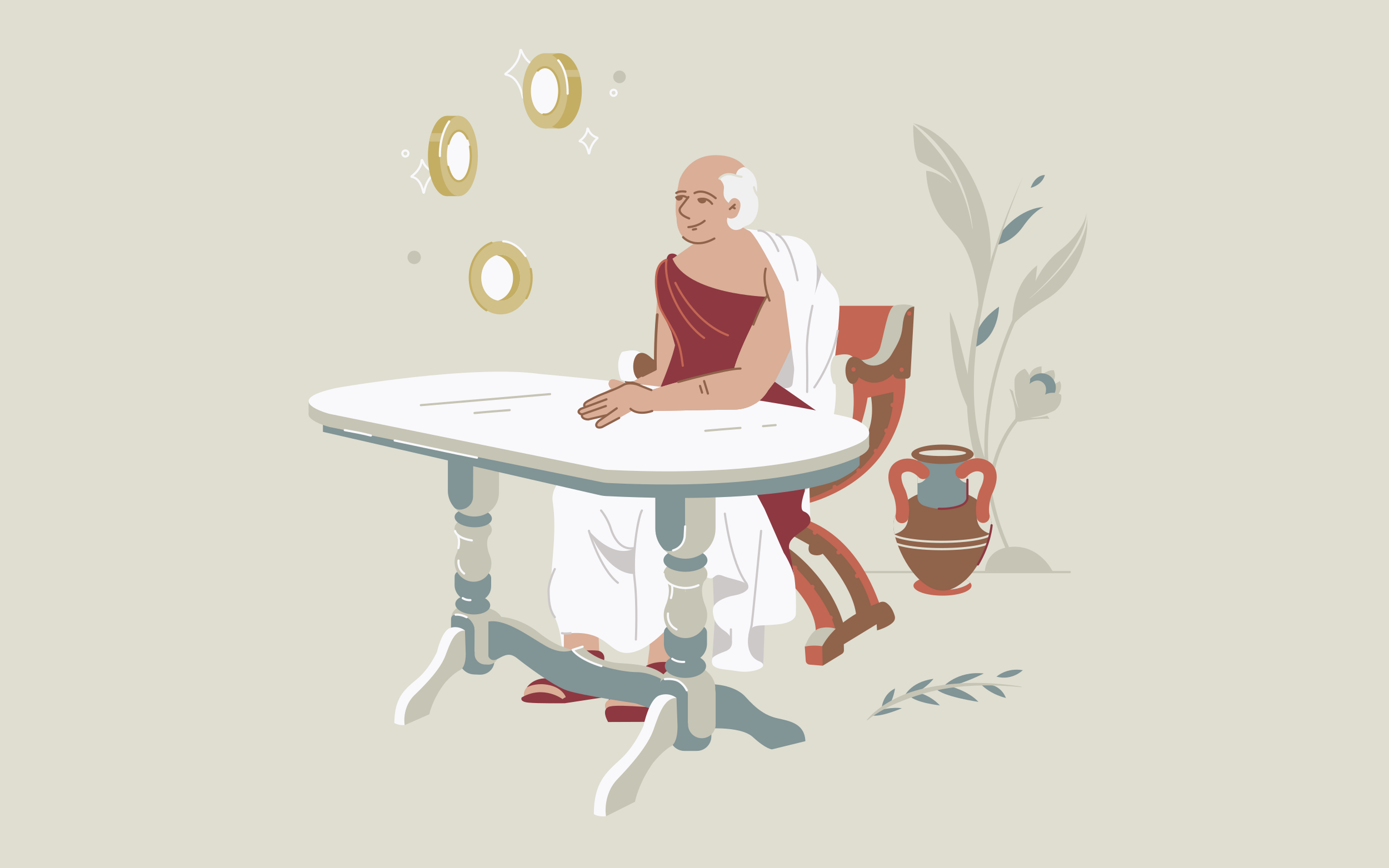# 08 Money Is A 'Preferred Indifferent'
*Week 2, Day 2 of [[00 The Wealthy Stoic Course]]* #source/course
<< [[07 The Poorest Stoic|Back]] | [[09 Don’t Take The Money|Next]] >>

## Content
The Stoics spoke about being indifferent, disinterested. Have no interest in what makes no difference, they said.
That’s the image of the Stoic. Unconcerned with what’s happening around them—no preferences, no emotion, good with whatever.
And there is a time and place for that. But in practice, in real life, the Stoics were still human beings. They had friends and dreams and loves and tastes. While Stoicism the abstract philosophy spoke of “indifference” to everything but virtue, in real life, the Stoics obviously preferred being comfortable to uncomfortable, liked to being disliked, rich than poor, healthy than sick.
[[Seneca]] called them “**preferred indifferents**.” The Stoic is strong enough to work with whatever life gives them. But if asked? Well of course they have some preferences.
**Watch [Instagram video](https://www.instagram.com/reel/CsuIF-Mgg6U/)** 📺
[[Seneca]] tells his friend Lucilius a story of the philosopher Stilbo that captures this nicely. After Demetrius—the “Sacker of Cities,” as Seneca calls him—conquered Stilbo’s home and destroyed everything he owned, Stilbo was asked if he lost anything. “I have all my goods with me!” Stilbo said. “I have lost nothing! My goods are all with me!” Seneca says this should be our goal: to not tie our happiness to things that can be taken or destroyed.
The Stoics weren’t alone. Xunzi explained that “the gentleman makes things his servants. The petty man is servant to things.”
The Austrian poet and novelist Rainer Maria Rilke wrote, “For property is poverty and fear; only to have possessed something and to have let go of it means carefree ownership.”
Which is why philosophers have always advocated reducing our needs and desires. The best car is not the one that turns the most heads, but the one you have to worry about the least. The best clothes are the ones that are the most comfortable, that require you to spend the least amount of time shopping—regardless of what the magazines say. The best paintings for your walls are the ones that don’t have you constantly fearing for and protecting and preventing people from going near them.
“None of our possessions is essential,” Seneca would write. “The things which we actually need are free for all, or else cheap…when a man has limited his desires within these bounds, he can challenge the happiness of Jove himself.”
[[Epictetus]] loved that expensive iron lamp. But after it was stolen, he enjoyed the less expensive clay lamp just the same.
But...let’s be clear about what “preferred indifferent” means. It means that if given the choice between having money and not having money, for instance, of course you would choose having money.
Stoicism isn’t about being a foolish, joyless robot. You don’t have to crush every hope or preference inside you. Again, as Thales proved, you can have both wisdom and riches.
While external things should not be the ultimate goal of life, the Stoics acknowledged, some external things are nevertheless preferred over others, based on their usefulness in achieving a person's goals and values. Good health, friendships, and financial stability are preferred because they can help a person live a virtuous and meaningful life, while sickness, loneliness, and poverty are dispreferred because they can hinder that goal.
Make sense?
---
## Activity
**Preferred Indifferent**
Take a moment to write down the external things that you do and don't prefer while trying to reach a goal. I know it sounds silly but come on, do it.
Now reflect on what it is that you have right now. Is it enough? Does it help you obtain your definition of wealth?